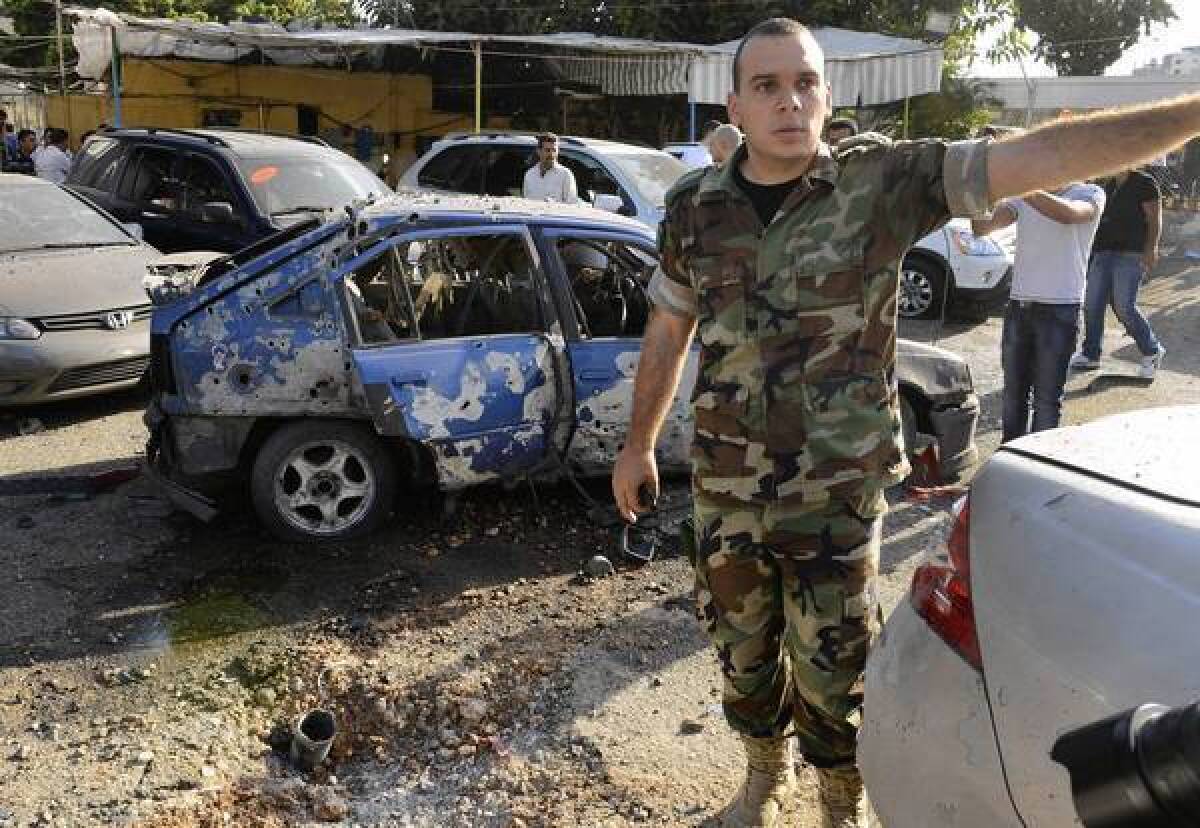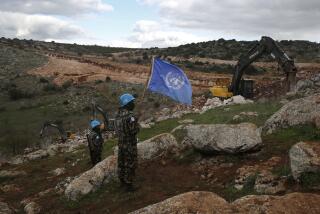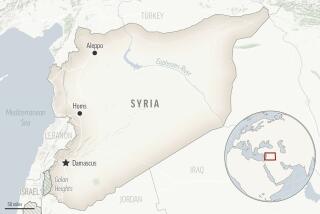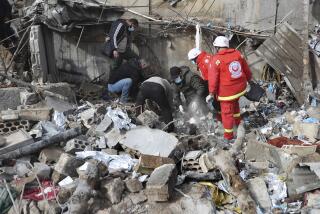Rockets raise fear that Syria’s conflict has crossed into Beirut

BEIRUT — Lebanese leaders called on their people Sunday to reject sectarian attacks after a pair of rockets slammed into a Beirut neighborhood, raising fears that spillover violence from the conflict in neighboring Syria had come to the Lebanese capital.
The early-morning strike, which left four men wounded, was widely seen as an attempt to foment sectarian strife and discord in a nation that shares many of the demographic traits of Syria, where a more-than-two-year conflict has played out across religious and ethnic lines.
Lebanese President Michel Suleiman called on citizens to “cut off the road to sedition,” in one of a number of public statements by politicians urging calm and exhorting against retaliation.
The continuing carnage in Syria has escalated tensions in Lebanon, but Beirut had until now been spared violence related to the conflict.
The northern Lebanese city of Tripoli, however, has seen a week of running gun battles between supporters and opponents of Syrian President Bashar that have left at least 25 dead. The army deployed there in a bid to stem the mayhem.
The two rockets in Beirut struck a southern neighborhood that is a stronghold of the militant group Hezbollah, a major political and military power in Lebanon. Many viewed the strike as a reaction to Hezbollah’s role helping Assad fight the uprising against his rule.
The attack came 12 hours after Hezbollah’s leader, Hassan Nasrallah, declared in a fiery speech that the militant Shiite Muslim group would throw all its weight behind Assad in the Syrian struggle.
Reaction to the speech tended to fall along sectarian lines. Shiite leaders generally praised Hezbollah’s stance. But many Sunni Muslims in Lebanon back the rebellion against Assad and resent Hezbollah’s intervention on behalf of the Syrian government. Sunni Muslims are leading the rebellion against Assad, a member of the Alawite sect, a Shiite offshoot.
Officials said Sunday’s attack in Beirut involved Grad rockets, which are notoriously inaccurate. The shells were fired from within Lebanon, from a hillside about six miles from where they struck, authorities said.
The four injured were all Syrian workers employed at a used-car lot. All were hit with shrapnel and debris, but none of the wounds were said to be life threatening.
In an interview at the lot, one of those injured said he was washing cars when the rocket struck about six feet from where he stood.
“There was a loud noise and the next thing I knew I fell on the ground,” said the survivor, who asked to be identified only by his first name, Abdullah, for security reasons. “I didn’t realize what had happened.”
His legs and face were covered with wounds from shrapnel and flying glass. More than a dozen cars at the lot were damaged. After being treated at a hospital, he and the other injured men returned to the car lot, where they were found later in the afternoon resting on the floor of a concrete shack. All voiced the hope that Beirut would not become a battleground like Syria.
Special correspondent Nabih Bulos contributed to this report.
More to Read
Start your day right
Sign up for Essential California for news, features and recommendations from the L.A. Times and beyond in your inbox six days a week.
You may occasionally receive promotional content from the Los Angeles Times.






